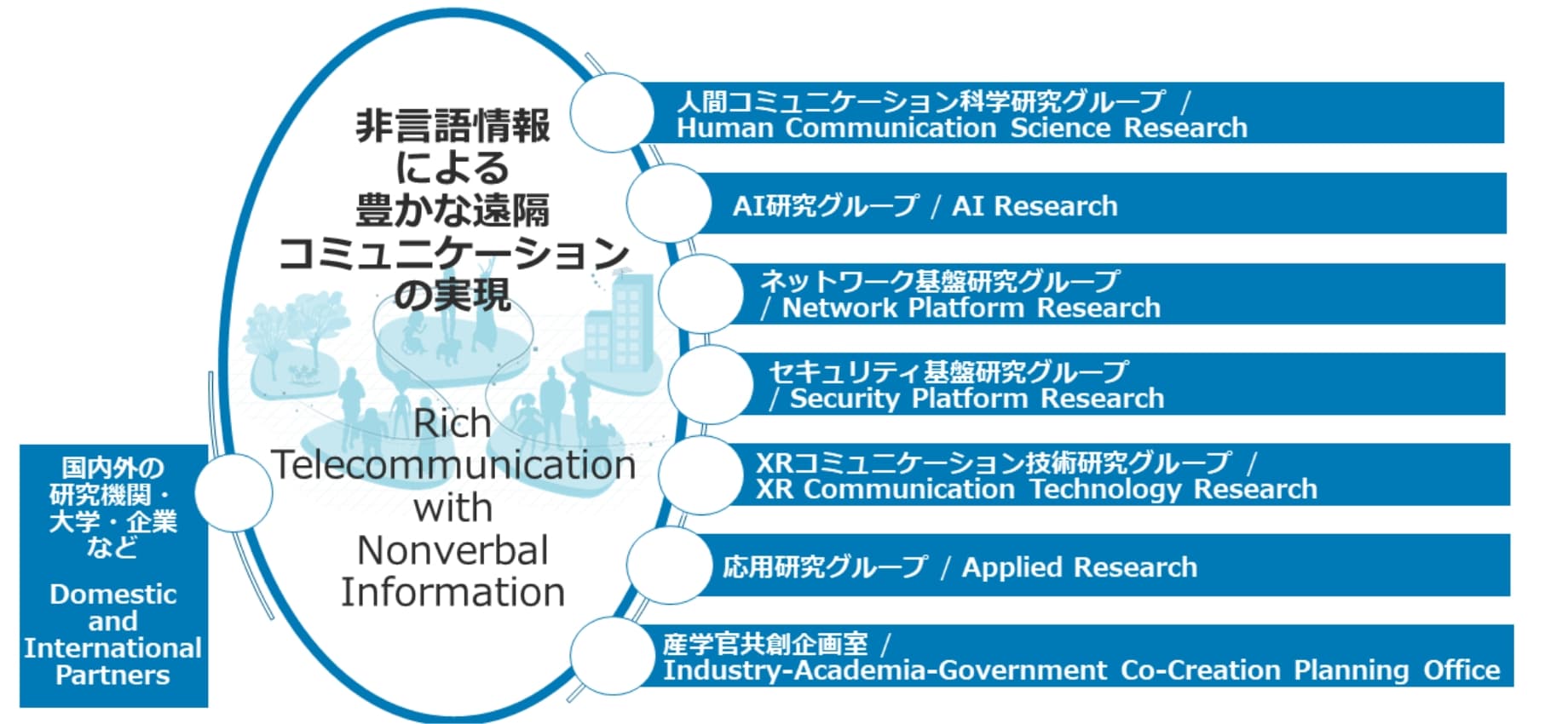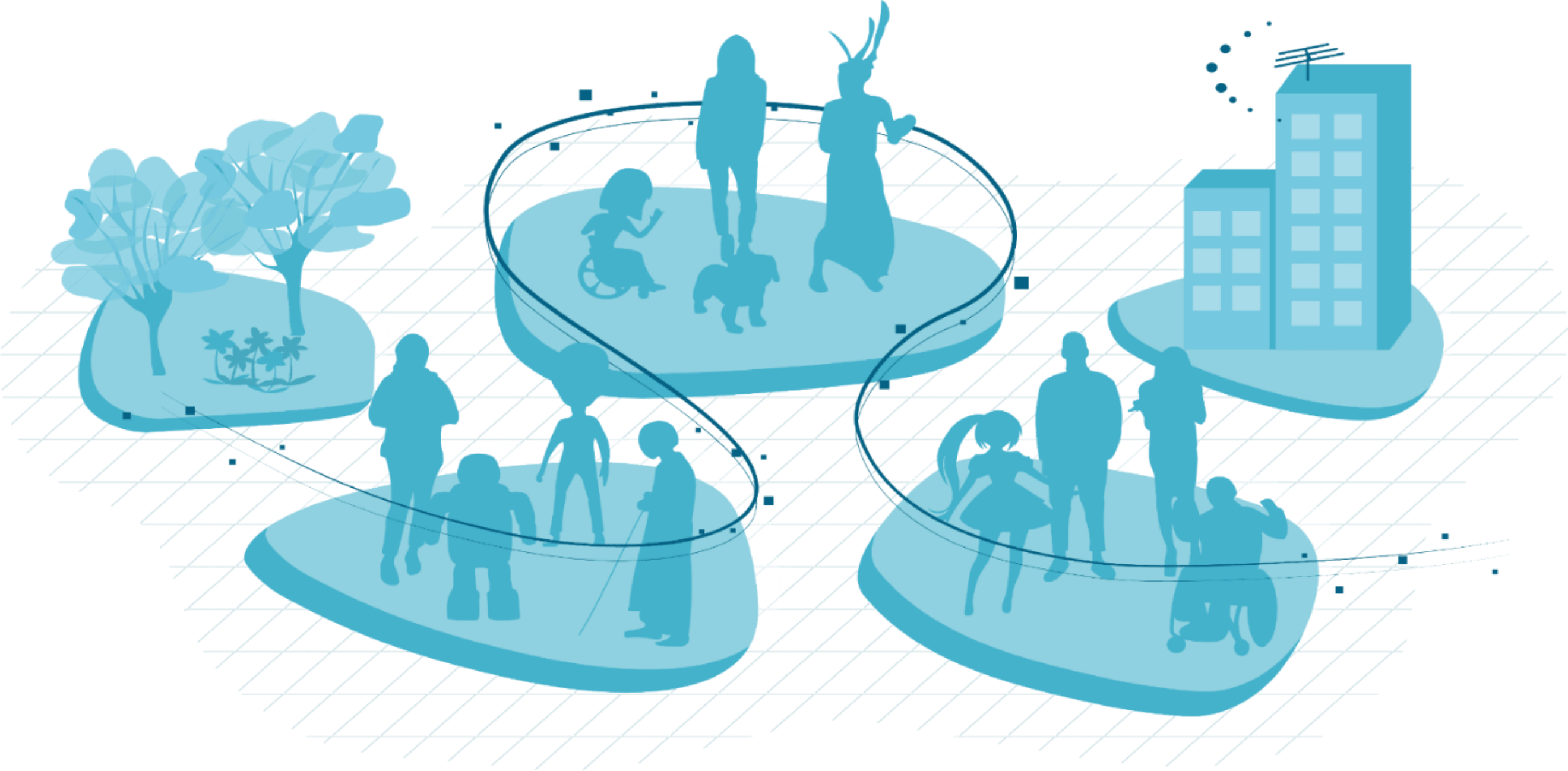Summary
In future telecommunications, it is expected that people will be able to communicate with each other in the cyber/virtual space with objects and information from the physical/real space they are located.
The successful key to realize such rich telecommunication is to unlock “communication with nonverbal information” by appropriately conveying the subtleties of “non-spoken signals,” which plays an important role in our daily interpersonal understanding. When AI for “verbal information” has become a useful tool to transcend the barriers of language differences, we hope creating AI for “nonverbal information” to build an accessible and inclusive society that accommodates diversities in physical competences, cultures, gender, etc.
In April 2023, the Research Institute of Electrical Communication, Tohoku University has established a new Interdisciplinary ICT Research Center for Cyber and Real Spaces to accelerate research and development of “telecommunication with nonverbal information” through interdisciplinary collaboration. This center will synergize basic and applied AI research, networks and security, human sciences (psychology, brain sciences), human-computer interactions, and VR/AR/MR communication technologies, to impact the society with the research results.
The Ministry of Education, Culture, Sports, Science and Technology (MEXT) has recognized the establishment of this center as an educational and research organizational reform to promote the creation and utilization of comprehensive knowledge across the arts and sciences, and provide financial support in the form of personnel expenses for faculty members.
Organization

The Interdisciplinary ICT Research Center for Cyber and Real Spaces consists of about 20 full-time and adjunct researchers from the Research Institute of Electrical Communication (RIEC) and other departments within the university in six research groups and one office, and conducts joint research with domestic and international partners, including research institutions and companies, to realize rich remote communication using nonverbal information.



